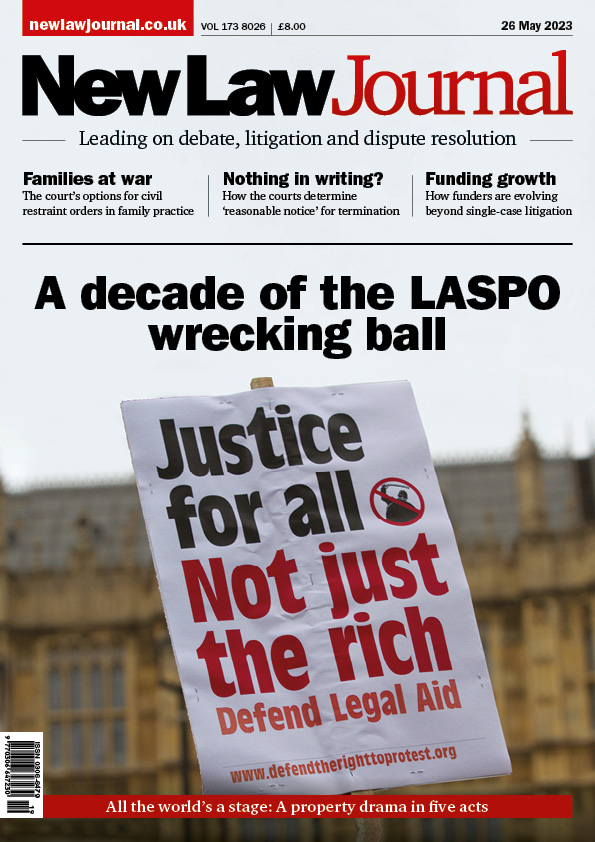THIS ISSUE

In tort, quantifying the extent of financial loss is a complex task for the courts. In this week’s NLJ, Ian Gascoigne, dispute resolution solicitor at LexisNexis, looks at the role played by the judge in such a case, considering caselaw and the many factors that must be taken into account.
Litigation funding is evolving beyond single-case litigation, Maurice MacSweeney, director of legal finance & sales planning at Harbour, writes in this week’s NLJ.
Ten years after LASPO—what’s the damage? In his column in this week’s NLJ, Jon Robins, vice chair of the Legal Action Group, assesses the state of access to justice in England and Wales, and finds it wanting.
Could a legal claim for reparations for the transatlantic slave trade succeed? Thomas Roe KC of 3 Hare Court considers a range of possibilities and potential obstacles to such a claim, in this week’s NLJ.
A decade after the ruinous cuts brought about by LASPO 2012, what is the extent of the impact on the legal aid sector? Jon Robins surveys the wreckage
Clare Williams provides a practical guide to the court’s options for civil restraint orders in family practice
Private nuisance, from overlooking to knotweed: what is the remedy? Andrew Francis presents a property drama in five acts
How can the courts determine the extent of economic loss due to financial downturns in a tort claim? Ian Gascoigne discusses the challenges of striking the right balance
In the absence of a formal written agreement, how will the courts determine ‘reasonable notice’ for termination? Anna Lancy & Robert Strang consider the key factors
Michael Zander on how the Government’s U-turn was greeted by the House of Lords at the Report stage of the Bill
MOVERS & SHAKERS

Keystone Law—Milena Szuniewicz-Wenzel & Ian Hopkinson
International arbitration team strengthened by double partner hire

Coodes Solicitors—Pam Johns, Rachel Pearce & Bradley Kaine
Firm celebrates trio holding senior regional law society and junior lawyers division roles

Michelman Robinson—Sukhi Kaler
Partner joins commercial and business litigation team in London
NEWS
The government has pledged to ‘move fast’ to protect children from harm caused by artificial intelligence (AI) chatbots, and could impose limits on social media as early as the summer
All eyes will be on the Court of Appeal (or its YouTube livestream) next week as it sits to consider the controversial Mazur judgment
An NHS Foundation Trust breached a consultant’s contract by delegating an investigation into his knowledge of nurse Lucy Letby’s case
Draft guidance for schools on how to support gender-questioning pupils provides ‘more clarity’, but headteachers may still need legal advice, an education lawyer has said
Litigation funder Innsworth Capital, which funded behemoth opt-out action Merricks v Mastercard, can bring a judicial review, the High Court ruled last week







